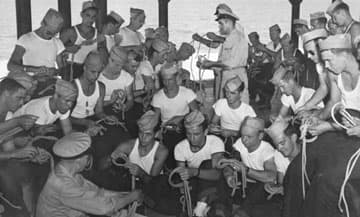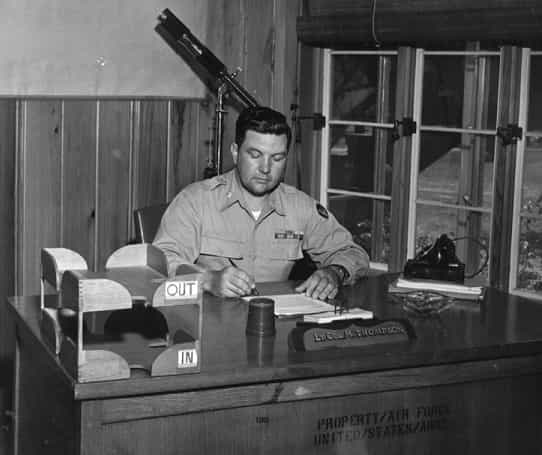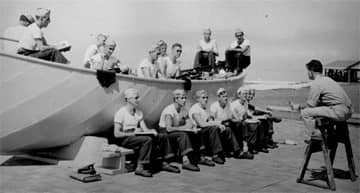Operation Ivory Soap: A Secret World War II Mission

During World War II, a secret military mission took place in an unexpected location—the Grand Hotel in Point Clear, Alabama.
This operation, known as Operation Ivory Soap, played a vital role in the Pacific theater, helping to repair and maintain American aircraft. The story of this operation remained hidden for years, but its impact on the war was significant.
A Unique War Strategy: Island Hopping
As the war in the Pacific raged on, American forces used a strategy called island hopping. Instead of attacking every island occupied by Japan, the U.S. military only captured key islands and skipped the others. This strategy allowed the Americans to move faster while saving soldiers and supplies. Capturing these islands provided the U.S. with new airfields, which helped extend their control over the Pacific.
However, a major challenge soon appeared—damaged aircraft. American planes returning from missions needed immediate repairs, but building repair stations on every island took too long. Without quick repairs, planes would be out of action, and the war effort would slow down.
A New Solution: Floating Repair Ships
General Henry H. “Hap” Arnold, leader of the U.S. Army Air Forces, realized they needed a faster way to fix damaged planes. His solution was floating repair shops—ships that could fix aircraft right in the ocean, close to battle zones. Six large Liberty ships were converted into Aircraft Repair Units, each carrying 344 men. Additionally, 18 smaller ships became Aircraft Maintenance Units, each with 48 men. These ships would be stocked with all the tools and parts needed to fix planes quickly, from small screws to full wings.
The only problem? The mechanics who would work on these ships had never been trained to live and work at sea. That’s where the Grand Hotel in Alabama came in.
Training at the Grand Hotel
Lieutenant Colonel Matthew Thompson, an experienced officer, was given just two weeks to organize a training program for these mechanics. He needed a location that would prepare the men for life at sea. Around that time, the Grand Hotel in Point Clear was planning to close. When Thompson learned about this, he reached out to Ed Roberts, owner of the hotel and head of the Waterman Steamship Company.

During their meeting, Roberts made an incredible offer—he would let the military use the hotel for free as his contribution to the war effort. Thompson, feeling that this was too generous, insisted on paying something. Roberts agreed to lease the hotel for just $1 per year for the rest of the war. A contract was signed, and the Grand Hotel officially became a military training center.
Why the Name “Ivory Soap”?
Every secret mission needs a code name, and this one got its name in an unusual way. During a meeting, someone went to the restroom and returned with an idea. The name “Ivory Soap” was inspired by the well-known soap brand that was famous for floating in water—just like these repair ships would. The name stuck, and Operation Ivory Soap was born.
Life at the Grand Hotel: Military Training Begins
Once the Grand Hotel became a training center, it was completely transformed to feel like a ship. Soldiers had to adjust to Navy-style living, following strict rules:
- The hotel floors were now called “decks.”
- Time was kept using ship bells.
- Smoking was only allowed when the “smoking lamp” was lit.
- To protect the beautiful wooden floors, soldiers never wore combat boots indoors.
The hotel’s dining room became a mess hall, and a 40-foot tower was built for training soldiers on how to jump into the ocean in case of emergency. There was even a lifeboat in Mobile Bay, where the men practiced rowing and surviving a shipwreck. Planes from the Naval Air Station in Pensacola would fly over the hotel, simulating enemy attacks to toughen the men up.
Rigorous Training for a Tough Job
The soldiers trained in all the skills they needed for their mission, including:
- Swimming and survival at sea
- Knot-tying for securing equipment
- Marching and military discipline
- Navigation and ship identification
- Amphibious operations (moving from ships to land)
- Cargo handling to quickly load and unload supplies
- Diving training for emergency underwater repairs

Despite the operation being a secret, locals often saw the soldiers training. The hot Alabama summer made the training even more realistic, as it felt similar to the tropical climate of the Pacific.
In just five months, 5,000 soldiers completed their training at the Grand Hotel and were sent into battle. Their leader, Lt. Col. Thompson, went with them. These men played a key role in major battles, including Guam, Iwo Jima, Okinawa, the Philippines, Saipan, and Tinian. Thanks to Operation Ivory Soap, hundreds of American aircraft were repaired and sent back into battle instead of being abandoned.
The Legacy of Operation Ivory Soap
For many years, Operation Ivory Soap remained a forgotten part of history. It was officially declassified in 1953, but few people knew about it. In 1998, Congressman Tony P. Hall spoke about it in the U.S. House of Representatives, calling it “one of the never-told stories” of the war. Many of the soldiers who had participated in the mission didn’t even realize how important their role had been.
In 1997, the Grand Hotel honored Operation Ivory Soap by renaming Suite 1108 as the Thompson Suite, after the leader of the mission. Thompson, who had retired in Pensacola, always stayed in that room whenever he visited. He passed away in 2005 at the age of 99.
Today, the Grand Hotel continues to honor its wartime history. Every day at 3:45 p.m., a procession takes place, followed by a cannon firing by Mobile Bay. This tradition serves as a reminder of the bravery and ingenuity of those who took part in Operation Ivory Soap.
Operation Ivory Soap was an example of American creativity, teamwork, and dedication during World War II. The mission helped keep U.S. aircraft flying, which contributed to winning the war in the Pacific. The generosity of people like Ed Roberts and the hard work of soldiers like those trained at the Grand Hotel played a crucial role in history. Though it remained a secret for many years, the story of Operation Ivory Soap deserves to be remembered and honored.
FAQ: Operation Ivory Soap
What was Operation Ivory Soap?
Operation Ivory Soap was a secret World War II mission. It used a famous hotel in Point Clear, Alabama, to train mechanics and sailors to repair aircraft on floating repair ships. This mobile repair system helped keep American planes flying during key battles in the Pacific.
When did Operation Ivory Soap take place?
The operation was set up in 1944 during World War II. The training at the Grand Hotel lasted for several months, and the mission officially started on July 10, 1944.
Where was the training held?
The training took place at the Grand Hotel in Point Clear, Alabama. Although it was a hotel, its spacious grounds and waterfront location made it a perfect place to simulate life at sea.
Who led Operation Ivory Soap?
Lieutenant Colonel Matthew Thompson led the operation. He was an experienced officer in the U.S. Army Air Forces and had experience from the British Royal Navy. His quick planning and leadership were vital to the success of the mission.
Why was the Grand Hotel chosen for training?
The Grand Hotel was about to close when the military learned about it. Its owner, Ed Roberts, generously offered the hotel to support the war effort. The hotel’s unique setting near Mobile Bay and its large, open spaces made it ideal for training soldiers in naval and repair skills.
How did the hotel get its naval look?
Once the Grand Hotel was chosen for the training center, it was transformed to mimic a ship. The floors were renamed “decks,” time was kept using a ship’s bell, and soldiers learned to follow Navy-style rules. This helped prepare them for living and working at sea on repair ships.
Why is it called “Ivory Soap”?
The code name “Ivory Soap” came from a simple, unexpected moment. During planning, someone noted that Ivory Soap floats in water. Because the repair ships were also built to float, the name stuck as a clever reference to the mission’s goal.
What was the main goal of Operation Ivory Soap?
The main goal was to repair and rearm American aircraft quickly. As the U.S. military moved through the Pacific using an “island hopping” strategy, damaged aircraft needed fast repairs. The operation ensured that planes were fixed aboard mobile repair ships and could return to battle sooner.
How did island hopping connect to this mission?
Island hopping was a strategy in which only key islands were captured to serve as airfields and supply bases. However, the rapid advance meant that repairing aircraft on every island was not practical. Operation Ivory Soap solved this by providing mobile repair facilities that could keep up with the fast pace of the campaign.
How many soldiers were trained during this operation?
In just five months, about 5,000 soldiers were trained at the Grand Hotel. These men learned important naval and mechanical skills that they later used in many major battles in the Pacific.
What did the floating repair ships do?
The floating repair ships were converted from Liberty ships. They were like mobile workshops, carrying everything needed to fix planes—from small parts to entire wings. These ships allowed damaged aircraft to be repaired quickly, which was crucial for keeping the U.S. air forces strong.
How did Operation Ivory Soap impact the war effort?
By training men to repair aircraft at sea, Operation Ivory Soap helped many American planes return to combat. This support was key in several battles in the Pacific, making a significant contribution to the overall Allied victory in World War II.
How is Operation Ivory Soap remembered today?
Although it was a secret for many years, the story of Operation Ivory Soap is now honored and remembered. The Grand Hotel still celebrates its history every day at 3:45 p.m. with a ceremony and cannon firing. Suite 1108 was renamed the Thompson Suite in honor of Lt. Col. Matthew Thompson. Local communities and historians continue to share the story of this unique and important mission.
